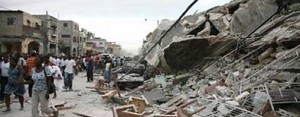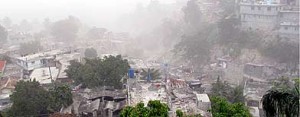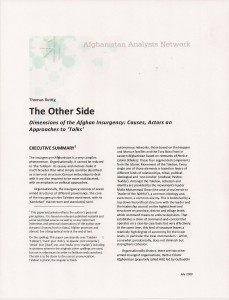
AP: Injured Haitians plead for help after quake
Haitians piled bodies along the devastated streets of their capital Wednesday after the strongest earthquake hit the poor Caribbean nation in more than 200 years crushed thousands of structures, from humble shacks to the National Palace and the U.N. peacekeeping headquarters. Untold numbers were still trapped.
Destroyed communications made it impossible to tell the extent of destruction from Tuesday afternoon's 7.0-magnitude tremor, or to estimate how many were dead among the collapsed buildings in Haiti's capital of about 2 million people.
France's foreign minister said the head of the U.N. peacekeeping mission was apparently among the dead.

Phi Beta Iota: This is precisely what was briefed recently to the DIA Multinational Intelligence Fellows and earlier in Tampa to the Coalition Coordination Center (CCC) and unnoticed by DIA as well as declined by CENTCOM as a transition model toward a Multinational Decision Support Center. The US Government does well enough with little things that can be handled by one agency, or one thing that must be handled by multiple agencies, but it does not do well as all with many things that must be handled by many players on a no-notice basis. The reason: a C4I system that is high-side unilateral expensive and largely useless past one big contingency. The solution: a global grid that is unclassified (commercial-level security) and open to everyone. DIA has enormous potential as a hub for Multinational Engagement and defense-rooted open source exploitation that also impacts on the QDR and acquisition while providing Combatant Commanders with relevant unclassified intelligence for COIN and other challenges.
See Also:







